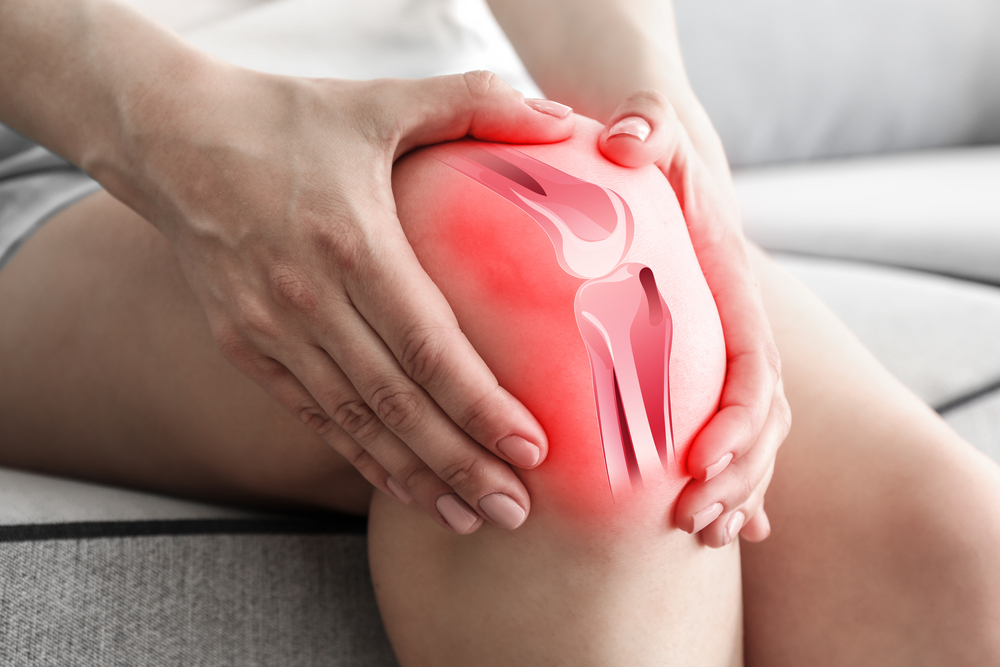
As an individual ages, it is not uncommon for them to experience sore muscles and stiff joints that have nothing to do with a hardcore workout and more to do with the inevitability of aging. Fortunately, there are many steps an individual can take to minimize soreness and stiffness such as regular stretching, light exercising, the proper use of heat and cold applications, and chiropractic care. The effect of nutrition on joint pain is often overlooked as a way of reducing inflammation, but it can be effective when implemented correctly.
The Effect of Nutrition on Joint Pain
You hear it all the time on commercials and see it in health ads. Anti-inflammatory diets are all the rage, but what does that mean exactly?
Basically, when an individual ingests something that the body does not recognize as normal, it can trigger the immune system to go into protection mode and cause inflammation in the body. So called normal foods the body typically recognizes are fresh fruits and vegetables and the like. Substances that are considered by the body to be foreign, or not normal, may include chemicals and pollens.
If eating a foreign food could cause the body to develop inflammation in the joints, consider what a steady diet of foreign foods such as fried and fast food could do to the body. The thought alone is enough to make us want to redo the grocery list right now, but it is best to first familiarize yourself with which foods should make the list.
Foods That Could Positively Impact Joint Pain
When it comes to the effect of nutrition on joint pain, one of the most frequently recommended nutrition plans is the Mediterranean diet. This is in large part because the basic building blocks of this diet are fresh fruits and vegetables and unprocessed foods. Not only can these foods be better for an individual’s waistline than highly processed foods, but they may also help reduce levels of inflammation in the body.
Some foods that may positively impact stiff joints and sore muscles include:
- Almonds
- Blueberries
- Collard Greens
- Cherries
- Kale
- Mackerel
- Olive oil
- Oranges
- Salmon
- Sardines
- Spinach
- Strawberries
- Tomatoes
- Tree nuts
- Tuna
- Walnuts
Foods To Avoid
Just as some foods may positively impact joint pain, there are foods that those suffering from sore and stiff joints will want to avoid, including:
Alcohol
Aside from the fact that alcohol typically has a high sugar content which can also be harmful, drinking too much alcohol can be bad for the liver, which plays an important role in the body’s metabolic functions.
Aspartame and Sugar
Aspartame, often found in diet sodas and food, is thought to sometimes bring on an autoimmune response in some people which results in inflammatory joint pain. And while aspartame is not recommended, neither is sugar as the consumption of it can trigger cytokines which are considered to be inflammatory messengers.
Gluten
Whether an individual is sensitive or intolerant to gluten or they have celiac disease, the introduction of gluten into the diet could cause an autoimmune response that in turn damages the lining of the stomach and intestine and reduces the body’s ability to absorb critical nutrients.
MSG
Also known as monosodium glutamate, ingested MSG can cause irritation of the joints. This is most often found in soy sauce, dressings, soups, deli meats, and fast food in general.
Omega-6 Fatty Acids
It is worth noting that a healthy diet does include omega-6 fatty acids, but to include them in moderation is best. Overdoing your intake of these fatty acids could negatively impact joint health and inflammation. When enjoying oils or mayonnaise, do so with restraint.
Refined Carbohydrates
The main reason eating too many refined carbs can be a problem is that it can play a major role in an individual becoming obese and increase their levels of inflammation. It is best to limit the intake of carb-heavy foods such as breads, cereals, rice, and potatoes.
Saturated Fats
In addition to saturated fats being a contributor to obesity and heart disease, they are also thought to generate adipose inflammation. These fats are typically found in meats, cheeses, pasta dishes, and desserts.
Trans Fats
Also a contributor to obesity and other issues, trans fats have long been considered a source of systemic inflammation. To effectively limit the intake of trans fats, avoid processed, fast, and fried foods.
Using the Chiropractor as A Resource
As an individual looks into alleviating muscle soreness and stiff joints, a trusted and respected chiropractor can be a valuable asset. In addition to helping patients minimize the effects of joint pain in the body, they can also help formulate a nutrition plan designed to reduce inflammation by avoiding foods that cause it and include good foods that help fight it.
To learn more about the effect of nutrition on joint pain, make an appointment with a chiropractor today and learn how to use food to your advantage.

